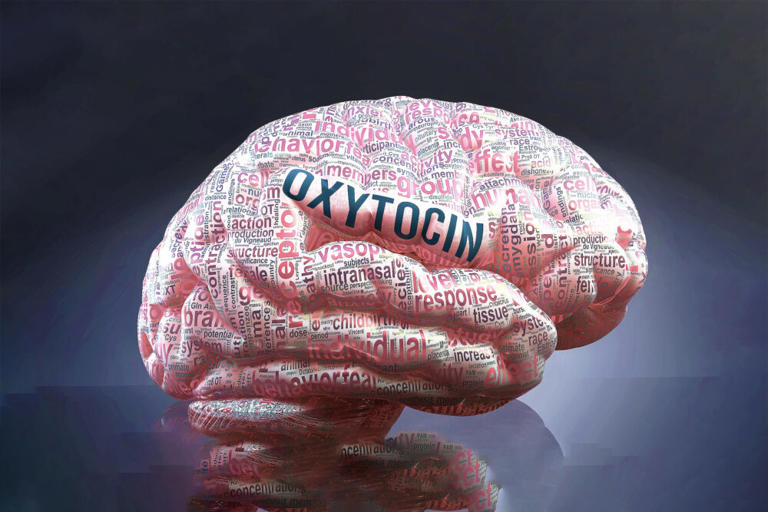In the intricate web of neurotransmitters and hormones that govern our brains, one molecule stands out for its profound influence on social bonds, emotional well-being, and now, cognitive functions: oxytocin. Renowned as the “love hormone,” oxytocin has long captivated researchers with its multifaceted roles in the brain and body. Now, groundbreaking research led by Professor Akiyoshi Saitoh and Junpei Takahashi from the Tokyo University of Science is shedding new light on oxytocin’s impact on memory, offering promising avenues for dementia treatment.
Delving into the Neural Pathways of Oxytocin
The study conducted by Professor Saitoh and his team employed sophisticated pharmacogenetic techniques to unravel the intricate neural pathways and signaling mechanisms triggered by oxytocin. By selectively activating oxytocin neurons in specific brain regions, the researchers provided novel insights into the hormone’s role in cognitive functions.
“Our previous studies hinted at oxytocin’s potential as a therapeutic candidate for dementia, particularly Alzheimer’s disease. Building upon this foundation, we delved deeper into the role of endogenous oxytocin in mouse cognitive function,” Professor Saitoh explained.
Understanding Oxytocin’s Influence on Memory
Central to the study was the exploration of oxytocin’s impact on learning and memory, particularly within the supramammillary nucleus (SuM), a region of the brain implicated in memory processes. Through meticulous experimentation, the researchers visualized brain slices of mice following the activation of oxytocin neurons in the paraventricular hypothalamic nucleus (PVN), a key brain area involved in oxytocin production.
The results were striking: activation of oxytocin neurons led to significant neural activity in the PVN and its projections to the SuM. This activation was corroborated by an increase in c-Fos positive cells, indicating heightened neuron activity, following administration of clozapine N-oxide.
Oxytocin’s Role in Long-Term Memory
While short-term spatial memory remained unaffected, the activation of oxytocin neurons markedly enhanced long-term object recognition memory in mice. This enhancement was accompanied by increased c-Fos positive neurons in the SuM and the dentate gyrus, suggesting oxytocin’s pivotal role in maintaining long-term memory.
Moreover, the selective activation of oxytocin axons in the SuM prompted mice to exhibit a greater interest in exploring novel objects, further emphasizing oxytocin’s modulation of object recognition memory.
Implications for Dementia Research
The findings from this research hold profound implications for our understanding of dementia and the potential development of novel therapeutic strategies. Professor Saitoh highlighted the importance of stimulating environments that activate oxytocin in the brain, potentially slowing the progression of dementia.
“In settings where individuals experience loneliness or limited social engagement, dementia tends to advance more rapidly. Our research aims to elucidate the critical role of oxytocin in counteracting this phenomenon, offering hope for individuals affected by dementia,” Professor Saitoh remarked.
In summary, this study unveils oxytocin’s crucial role in enhancing long-term memory, paving the way for innovative dementia treatments. By unraveling the intricate mechanisms through which oxytocin operates in the brain, researchers are poised to revolutionize dementia care and offer new hope to millions worldwide.
Exploring the Many Facets of Oxytocin
Beyond its role in memory and dementia research, oxytocin continues to intrigue scientists for its diverse effects on human behavior and health.
Social Bonding and Emotional Well-Being
Often referred to as the “love hormone,” oxytocin plays a central role in fostering social bonds, trust, and empathy between individuals. By facilitating positive social interactions, oxytocin enhances emotional well-being and contributes to the formation and maintenance of relationships.
Research indicates that oxytocin can improve social skills in individuals with autism spectrum disorder, offering potential avenues for enhancing social functioning in neurodiverse populations.
Physical Health and Stress Regulation
The influence of oxytocin extends beyond the realms of the mind, exerting profound effects on physical health. By regulating the stress response, oxytocin helps lower cortisol levels and reduce blood pressure, highlighting its potential in stress-related disorders and cardiovascular health.
Furthermore, oxytocin’s anti-inflammatory properties suggest its involvement in combating inflammation, offering insights into its role in chronic diseases and the aging process.
Future Directions in Oxytocin Research
As scientists continue to unravel the complexities of oxytocin, the future holds promise for innovative treatments and interventions across a spectrum of conditions.
Ongoing research aims to harness oxytocin’s therapeutic potential in mental health disorders, dementia, and social functioning, offering hope for improved well-being and quality of life.
However, researchers caution against oversimplification, emphasizing the need for a nuanced understanding of oxytocin’s effects in different contexts and populations.
Oxytocin, with its profound influence on both mind and body, represents a fascinating frontier in neuroscience and medical research. As our understanding of this remarkable hormone deepens, so too does the potential for transformative interventions and treatments.
From enhancing memory and cognition to fostering social bonds and emotional well-being, oxytocin’s myriad effects underscore its importance in shaping human experience.
As we journey further into the realm of oxytocin research, the promise of innovative therapies and interventions holds the potential to improve lives and usher in a new era of health and well-being.
